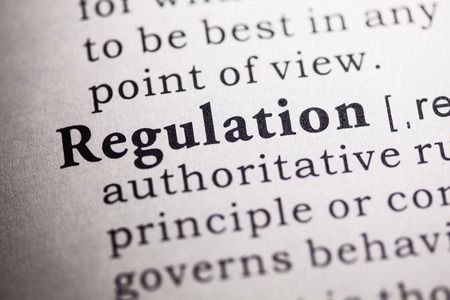The Securities and Exchange Commission’s (SEC) recent rule change that lifts the longtime ban on the advertising of private placements has many investor protection groups concerned. Under the new SEC rule, hedge funds and other firms will be able to widely solicit investors for private placement offerings.
The 80-year-old advertisement ban was lifted in order to comply with the JOBS Act, which relaxes securities regulation to help grow small business and create jobs. By allowing companies to advertise for private placement, supporters of the JOBS Act believe that more smaller companies will be able to find investors and go public.
Even though advertising can be directed at anyone, private placements can only be purchased by accredited investors. Pursuant to SEC Rule 501 an individual qualifies as an accredited investor if individual annual income exceeding $200,000 or net worth of $1 million, excluding the value of their home.
Despite these requirements, many are concerned that unsophisticated investors will fall victim to fraudulent investment advertisements or receive baseless accredited status.
To address these concerns, the SEC will require company’s to take certain measures, such as reviewing IRS forms or receiving written confirmation from the investors’ brokerage firm.
Unfortunately, these measures may not be enough to protect some investors. Brokerage-firms may have a difficult time objectively assessing potential investors considering the hefty commissions they often earn from private placement sales, some as high as 15%. In addition, brokerage firms may now be faced with numerous non-accredited costumers eager to invest in a private placement they saw advertised.
The trouble with private placements is that most are offered under Rule 506 of Regulation D, which are exempt from the Federal Securities act of 1933 . This lack of regulatory oversight often limits the amount of information publicly available to investors.
In order to better monitor advertised private placements, the SEC has proposed changes to Rule 506 that would require additional information from the issuer to comply with regulation D requirements. Under the new rule, private placements would have to included more detailed information on the company, its website, the types of advertisement, and the use of proceeds from the sale.
In addition, the SEC adopted rules required by the 2010 Dodd-Frank Act that will prohibit felons and other law breakers from participating in private placement offerings.
The rule changes will go into effect 60 days after publication in the Federal Register.
The foregoing information, which is publicly available on the SEC website, is being provided by The White Law Group, LLC.
The White Law Group is currently investigating claims against broker dealers who may have misrepresented private placement offering or overlooked suitability requirements. If you have concerns about your private placement investment and would lie to speak with a securities attorney, please call The White Law Group at 312-238-9650 for a free consultation.
The White Law Group is a national securities fraud, securities arbitration, and investor protection/compliance law firm with office in Chicago, Illinois and Boca Raton, Florida
For more information on The White Law Group, visit www.WhiteSecuritiesLaw.com.
Tags: advertising ban, bad actor rule, lift on advertising ban, private placement accreditation, private placement advertisement, private placement concerns, private placement fraud, private placement investor protection, private placement lawyer, private placement regulation, private placement requirements, private placement rule change, private placement securities attorney, private placement trouble, Rule 506 amended, Rule 506 changes, SEC advertisement ban, securities advertisement ban Last modified: July 17, 2015

